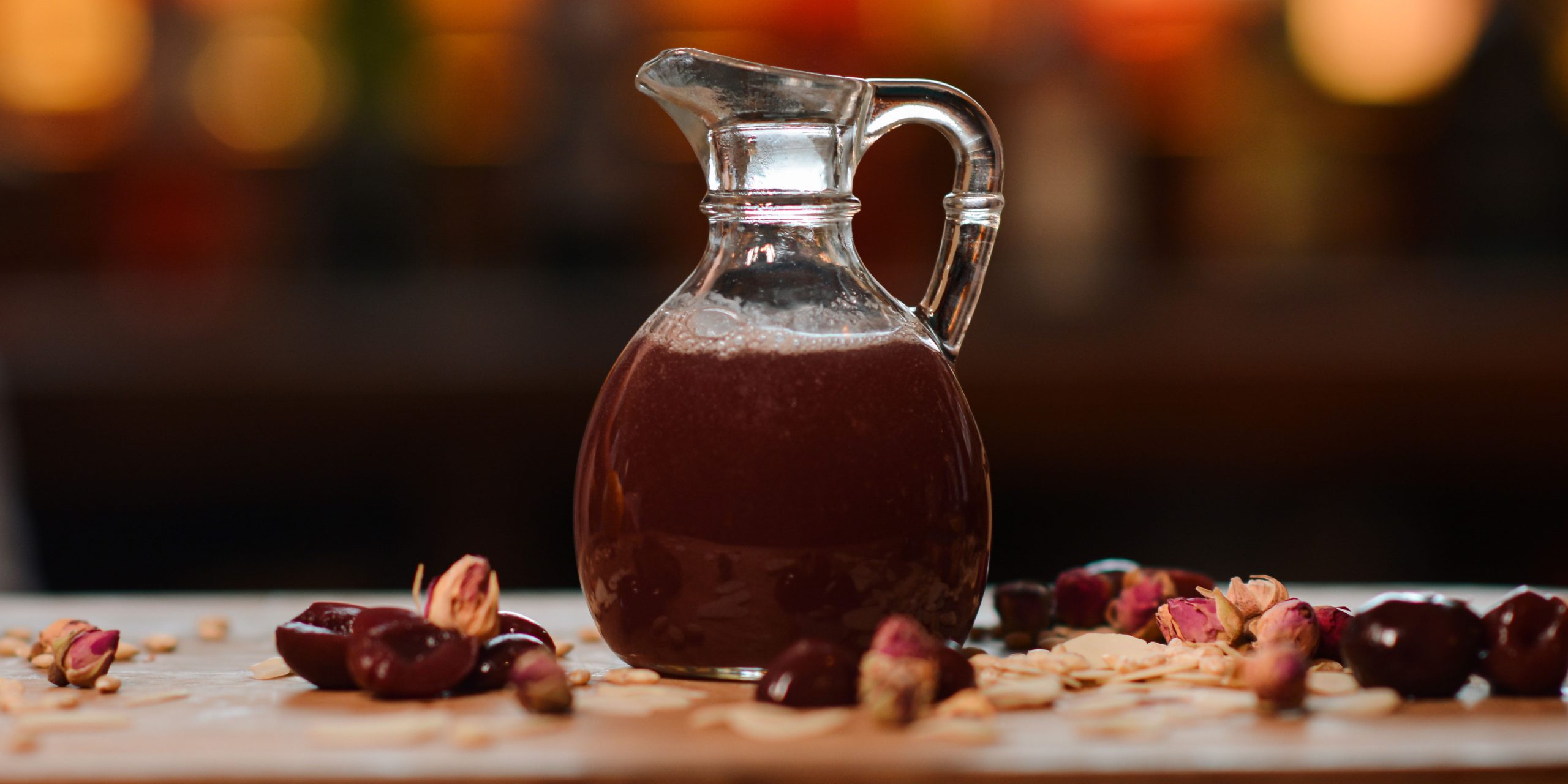Read Time: 7 Minutes |
There is a tension in cocktail culture between store-bought products and homemade ingredients. While there are advantages and disadvantages to both, the question remains, are homemade products better than store-bought?
| By Cameron Mowat
In the world of cocktail bartending, there are levels to cocktails. We would define them as such:
- Mixed Drinks
These are cocktails like highballs, almost always built over ice using a spirit and a mixer. Think of your Gin & Tonics or your Moscow Mules.
- Classic Cocktails
There is some overlap between the classics and mixed drinks. However classics can range vastly in complexity of not only recipes but ingredient choice. Most cocktail bartenders will have a good grasp of the classics and have an arsenal of recipes in their head.
- Twists
These are the classics reinvented. ‘Twisting’ is the process of adding or swapping an ingredient in a classic recipe to make a similar cocktail with a different flavour. Some good examples might be a Strawberry Daiquiri or a Mezcal Negroni. Take the base cocktail and change an element to make it comfortingly familiar yet profoundly distinct.
- Craft Cocktails
‘Craft’ implies the creation of an ingredient or range of ingredients for a unique cocktail. That ingredient might be something as simple as a syrup, or as complex as a micro-distilled spirit. The main difference between a twist and a craft cocktail (though the lines can blur), is the idea of pursuing a unique or original flavour and design. That being said, most cocktails end up falling into a broad category no matter how original you try to be, but that is a different conversation to have.
- Molecular Mixology Cocktails
This is something of a controversial area of cocktail culture, but you might see it as the ‘top’ level of the craft, in its complexity and relation to chemistry. These ‘molecular’ cocktails include fully clarified drinks, spherified cocktails, edible clouds and all the other ‘mad science’ concoctions that are popping up in some of the weird and wonderful bars around the world.
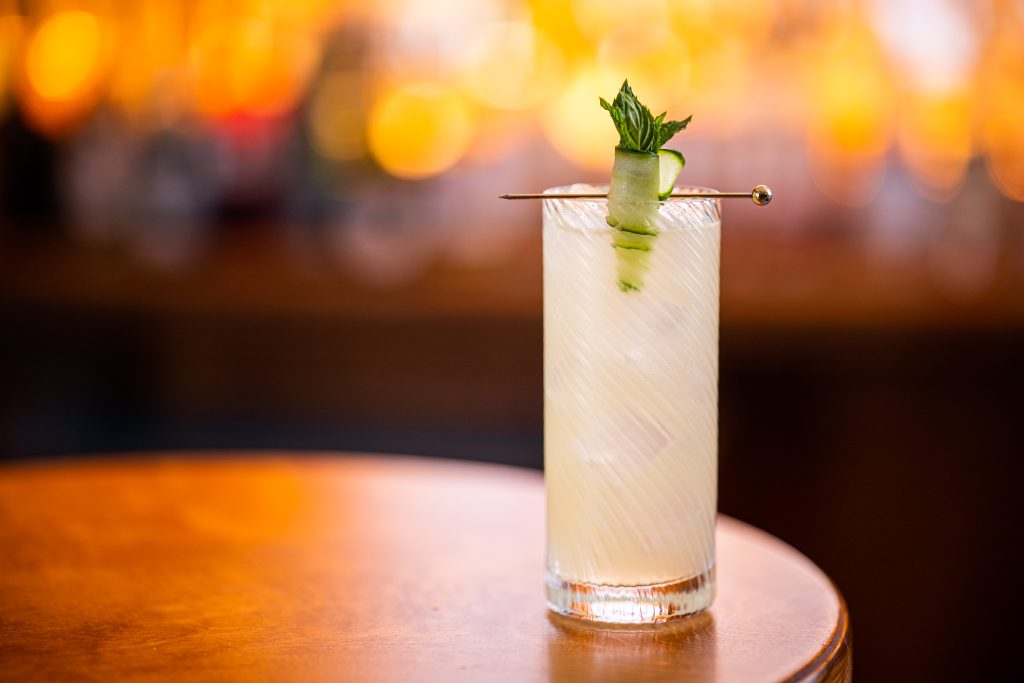
Why bring these ‘levels’ of cocktails up? Because within those levels is the main dividing line between store-bought products and homemade products. From twists upwards, it’s hard to achieve the ‘heights’ of cocktail culture without getting your hands dirty and diving into the world of mixology, where the homemade ingredient reigns supreme.
But why such a focus on homemade products?
The Many Advantages Of Homemade Products
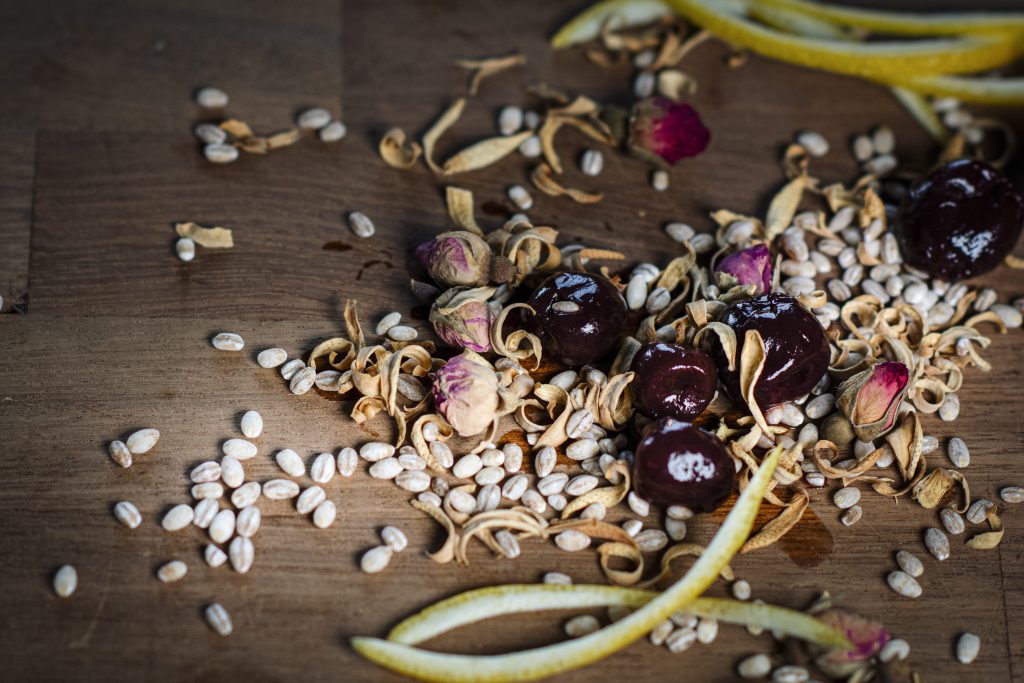
Homemade products have several major advantages over their store-bought cousins.
- Quality of flavour
Homemade ingredients tend to use fresh or at the very least organic produce to capture their flavours. Take the Strawberry & Peppercorn Shrub from our most recent blog post for example. By putting fresh strawberries into a sous-vide bath we extracted the ‘cleanest’ and most authentic strawberry flavour into our product.
On the other hand, store-bought strawberry syrups tend to have a synthetic flavour, one that is simply reminiscent of the original fruit. Even if the flavour doesn’t taste slightly chemical, more often than not it will taste closer to strawberry jam than fresh fruit.
Suffice it to say, homemade ingredients almost always taste more authentic. Plus they don’t often use stabilisers or preservatives that can affect the taste and blur the flavours contained in the product, which is something that store-bought products must sacrifice in order to keep themselves ‘shelf-stable’ and long lasting.
- The Cheaper Option
Homemade products also tend to be cheaper than store-bought. This is not always the case of course, when it comes to some of the more advanced products out there. However as a general rule of thumb, the yield of mixology processes tends to come out in favour of the process being cheaper.
Take for example something like a Hibiscus Syrup. You can buy 700ml bottle of Monin Hibiscus Syrup for about €15 online, slightly more in retail outlets. On the other hand you can buy dried hibiscus flowers for around €5 for 100g, and according to our recipe, you could make around 3 litres of hibiscus syrup with that much product (and a 2k bag of sugar for about €3). If you factor in that the flavour is also likely to be superior then you’re making over 4 times the amount at half the price of a better syrup.
- Customisation
While quality of flavour is probably the more important factor, the freedom to customise, refine and experiment is definitely a major advantage of homemade products. Store-bought products tend to be mono-dimensional like a vanilla syrup, or be a classic blend of flavours like a winter spice syrup.
The really interesting flavour combinations tend to happen in the mixology world. This is not always the case, it must be said. There are some fascinating and richly complex store-bought products out there, like Paragon Cordials for example. However they are rarer, far more expensive and only represent a minor segment of the market.
For an example of the sort of complexity you can achieve with homemade products, look no further than our Stout Reduction. This product has a profound complexity and depth of flavour, achieved by not only reducing the stout, but by mixing in some complementary spices, fresh orange zest and dark chocolate. This is the sort of flavour you won’t find on the shelf.
By controlling the creative process you allow for personal expression of your palate’s preferences. You can create products specifically for use with certain spirits, or tweak a recipe so that it fits better into a cocktail you’re designing. The endless possibilities of customisation open up so many different flavours to explore.
You might see then, why homemade products dominate the high end of the cocktail world. They’re superior in taste, cost and design to store-bought products, and when quality of flavour and complexity are two of the most highly valued attributes in high-end cocktails, it’s a no-brainer that homemade products are preferred.
In Defence of Store-Bought Products
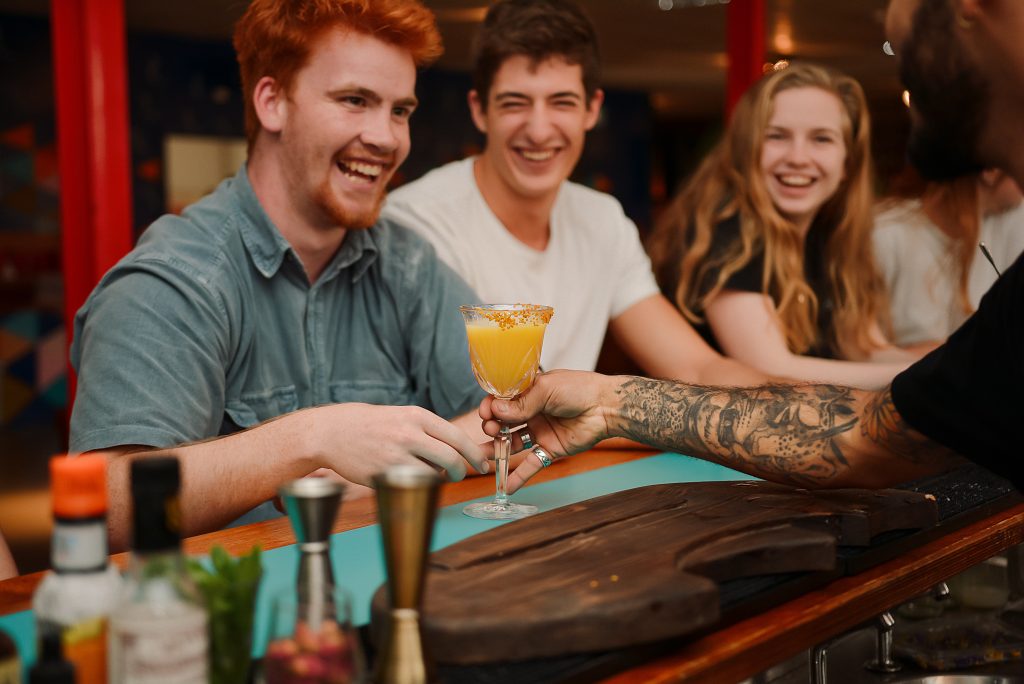
All this may seem like our stance is firmly ‘anti store-bought’. However balance in opinion is often as important as balance in a cocktail. Store-bought, while usually not having the same depth of flavour, complexity or low cost, do have some serious advantages over homemade products.
- Consistency
In the world of great drinks, whether it be cocktails, spirits or non-alcoholic, consistency is key. Delivering the same experience time and time again is what keeps producers and bars a like in the game. For example if you go to a bar to order an Espresso Martini and it tastes different every time, the chances of going back to order it again get smaller and smaller. On the other hand if there is a bar that does ‘great Pineapple Daiquiris’, and every time you go they’re the exact same quality, you’ll go back time and time again.
The problem with homemade ingredients is that they can vary, often quite substantially. Where store-bought products have consistent supply lines, production and equipment, homemade products can taste different because you had to use a different packet of nutmegs, or the passion fruits weren’t as ripe or your pan was slightly burnt after it was used for something else.
All these factors can affect consistency. If true consistency is the goal, then sometimes finding a store-bought product you’re happy with and sticking to it can be much more beneficial.
- Time-saving
Let’s be honest, store-bought products are simply easier to source and don’t require any time spent making them. When it comes to creating cocktails for a bar menu, involving mixology means that your prep times sky rocket, as well as time needed to source ingredients, put in orders and bottle and label products when they’re finished.
In many ways, homemade products can be clunky and unwieldy in a fast paced bar environment. Run out of your homemade Lemon & Rosemary Oleo-Saccharum in the middle of service? 1-2 hours in the kitchen. Run out of your bottled Passion Fruit Syrup? Crack another box and keep going.
Obviously careful planning and par levels can help you avoid this situation with homemade ingredients but when mistakes are inevitably made, buying a bottle of bitters from the shop is definitely faster and more convenient than waiting two weeks for your homemade bitters to steep.
- Shelf Stable
While homemade products are cheaper than store bought ones in terms of price per litre, the difference in shelf-life is enormous. If you’re not working in a high volume bar that will turn through all of it’s homemade products on a weekly basis, or you’re a casual cocktail connoisseur that likes hosting the odd cocktail party, the 2-week max shelf life of most mixology products can cause some pretty major product wastage.
Store-brought products, because of their preservatives and stabilisers, will last for months, if not years on the shelf, longer if they’re kept refrigerated. Clearly the benefits of that fact are substantial, buying one bottle of Watermelon Syrup and having it for months is a lot more convenient than having to go out and buy a whole watermelon, prep it and then cook it into a syrup everytime you want a Watermelon Cooler.
While shelf stability does come with a cost in flavour, it’s fair to say that it makes up for it in longevity.
Context Is Key
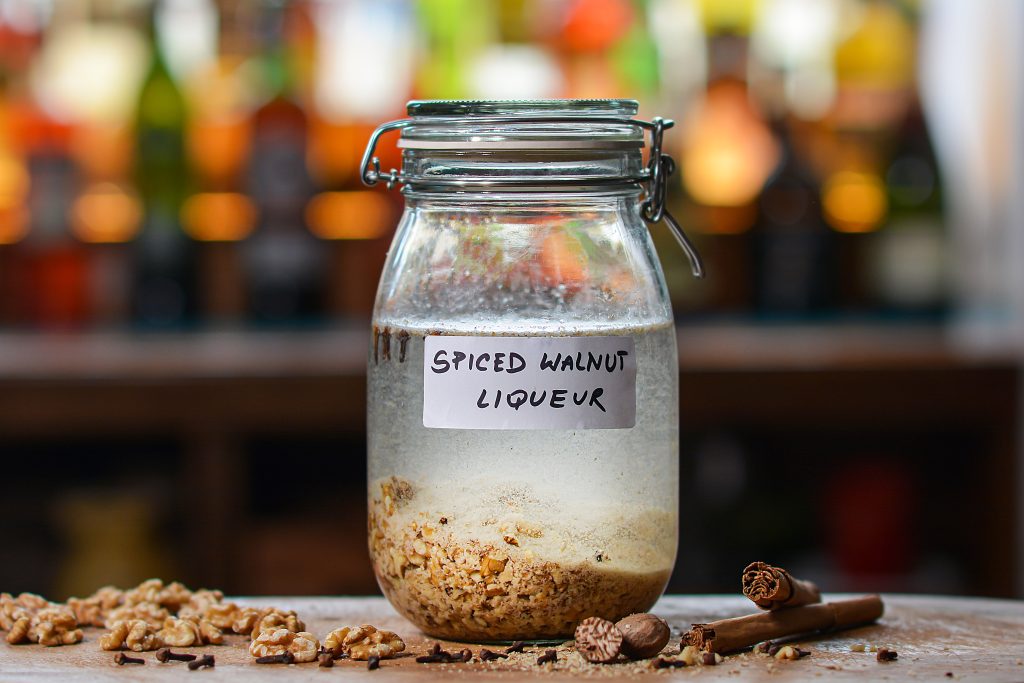
All in all, and it may seem cliche to say, but context is key.
Mixology is a practice that is best for those with time on their hands, or at the very least the resources and organisation to get the most out of it. Making homemade products might be essential for high-level bars that want to make a mark on cocktail culture by exploring the heights of flavour and production techniques, but not so much for the new bar that just wants a nice, consistent Pornstar Martini on their menu.
Homemade products (if made correctly) will almost always have better flavour and character than their store-bought counterparts, but will often suffer consistency issues and greater time investments. Therefore picking when and where to apply homemade or store-bought products to your drinks is the main thing to think about.
Heading to a party where you’re going to smash out Blueberry Margaritas for the whole night? Buy a bottle of syrup and save yourself the effort. Making some after dinner Espresso Martinis for your dinner party? Go ahead and whip up a vanilla and cinnamon syrup. Trying to become the best craft cocktail bar in town? You’d better start charging up your soda siphons for your homemade Green Apple Soda. Adding your first cocktail menu to your bar to suit the younger clientele? Buying Angostura Bitters is going to work just fine.
People in the more advanced levels of any industry, be it cocktails, music, fashion or others, will always sniff at the more entry level options. This is a fact of life. However they have their value too, and being able to use both when appropriate makes you a more well rounded member of the industry.
All that being said, if we’re just talking flavour… homemade wins it every time.

